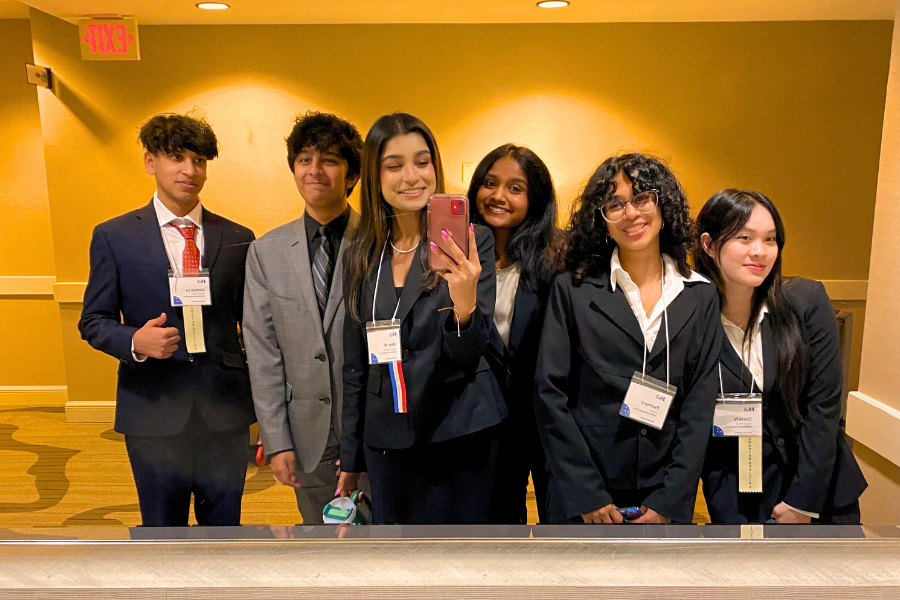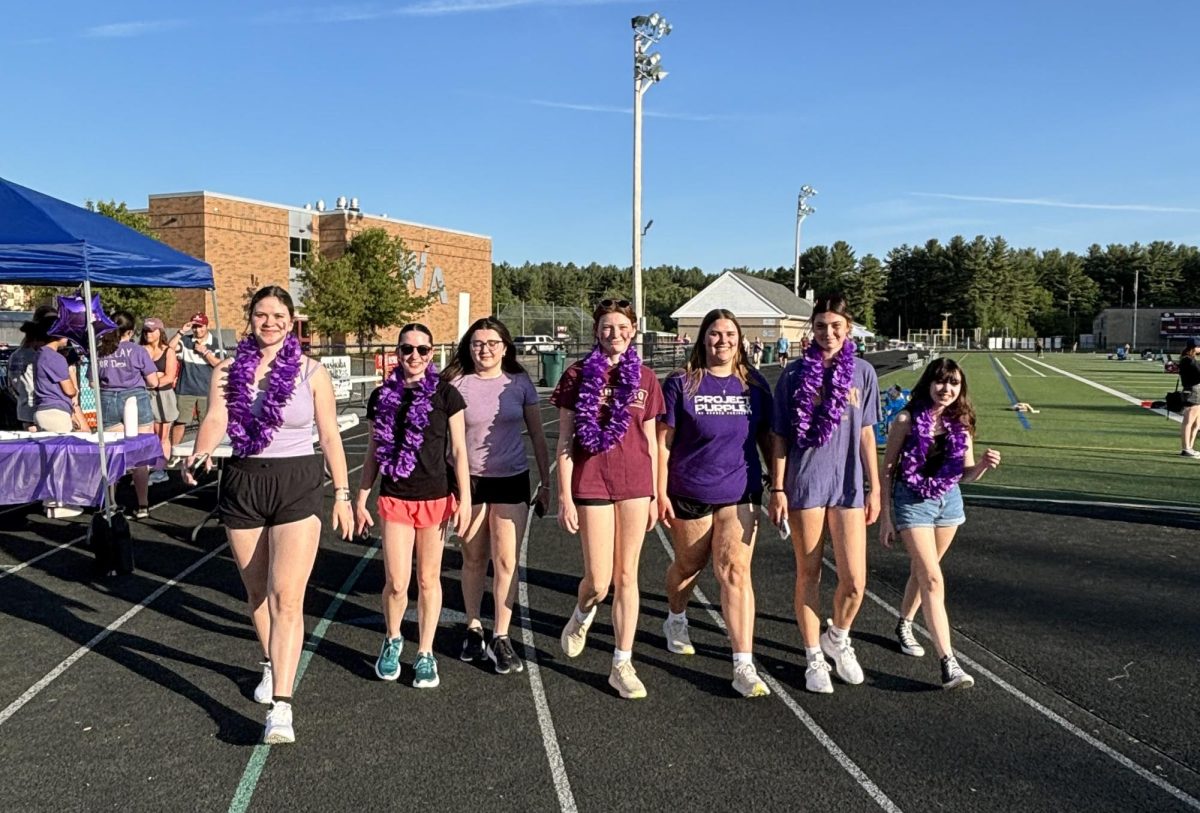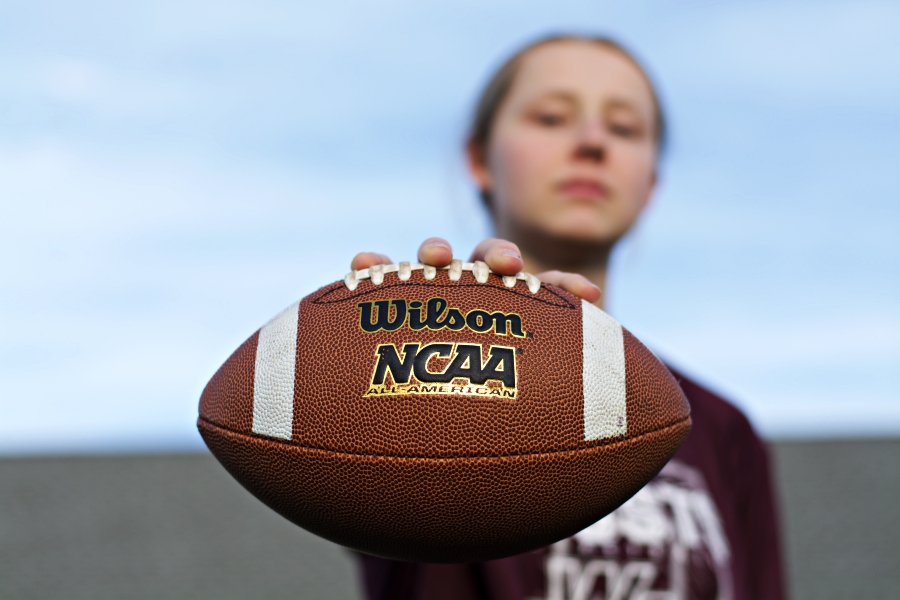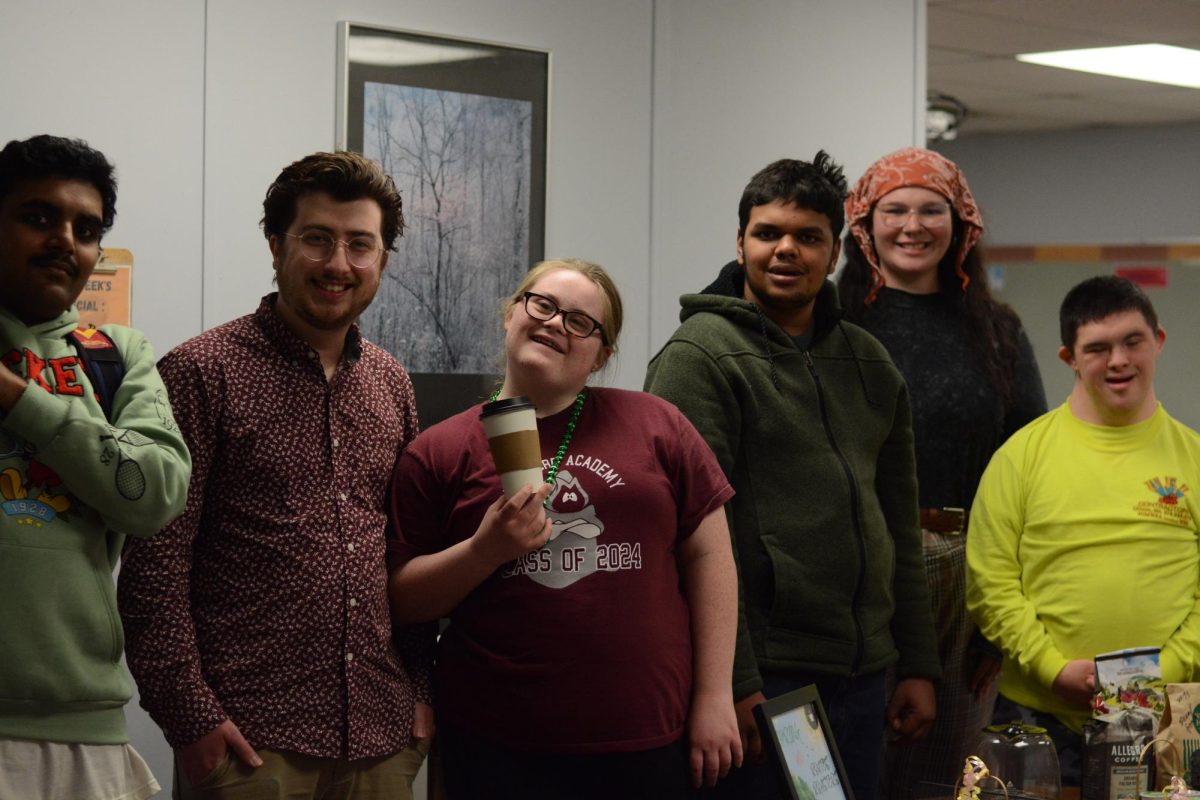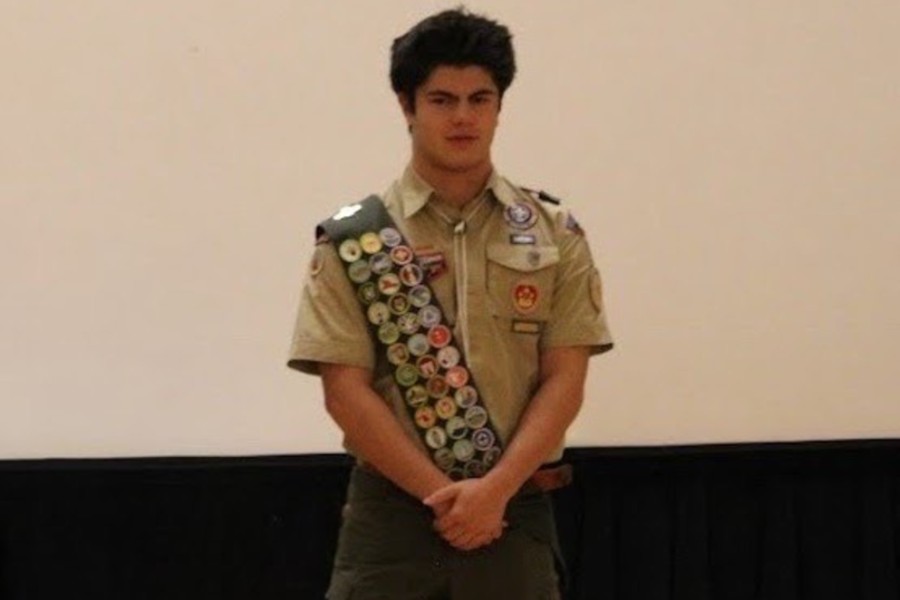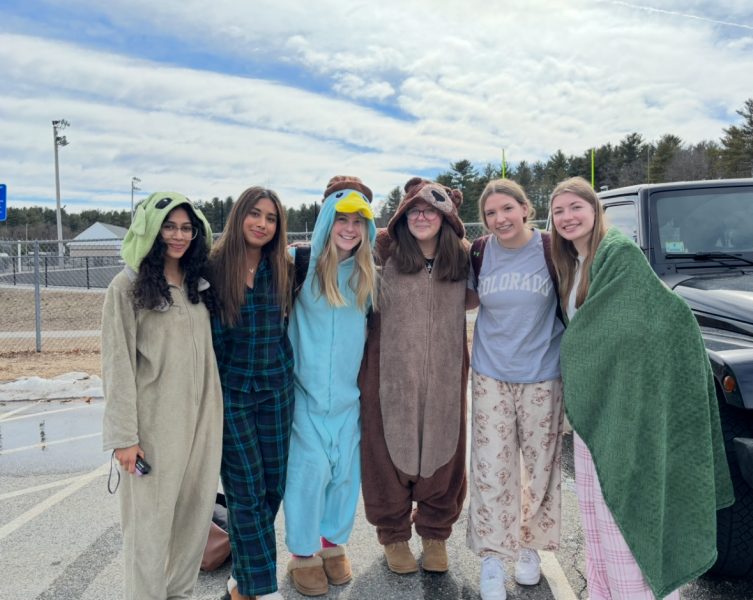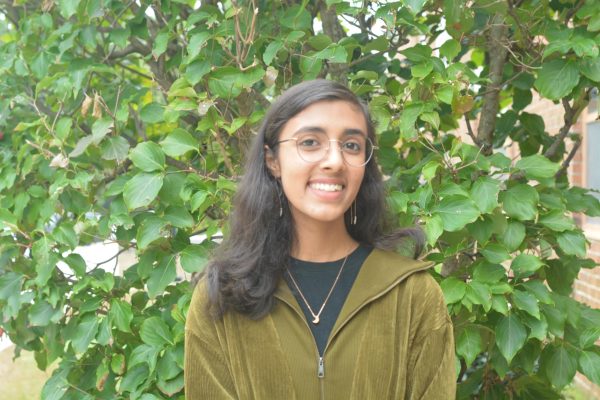Tuesdays after school, the door to room 245 is typically shut. Open it, however, and what floods out immediately is the sound of laughter and discussion. A small but tight-knit group of around 15 students is scattered around the classroom, reviewing their thoughts on the debate they just watched unfold in front of them. Perhaps they are lightheartedly weighing the pros and cons of celery compared to other vegetables, or they may be immersed in discourse on which country is in the right in an overseas conflict.
No matter what their conversations may be about, one thing becomes clear immediately: the students’ passion for analyzing issues critically and thoroughly, from multiple angles. These students are the members of WA’s Junior State of America (JSA). This is a scene that is commonly seen unfolding during their meetings as they aim to build their political literacy and prepare for conferences such as the one they recently returned from, Spring State, which involve debating and delivering speeches competitively.
WA’s JSA is a school-level branch of the national youth organization, JSA, whose goal is to bring students more awareness of political issues, as well as prepare them to be able to participate and potentially take on future leadership roles in a democratic society. Throughout the year, JSA holds conferences like Spring State on both the regional and national level so students can practice developing their debating and speech-delivering skills in a competitive environment.
The 2024 Northeast Spring State competition, which WA’s JSA attended, took place from April 20-21 in Rocky Hill, Connecticut and was open to teams in JSA’s Northeast State (NES), including New England, New York, and Connecticut. This specific conference is described as the “culminating event” of the school year for JSA and it provides students with the opportunity to participate in or spectate debates on an assortment of compelling topics.
There were six people representing WA’s JSA at the conference this year, and the team emerged very successful as a whole. Four of the six members who took part in debates–junior and club co-president Heer Mehta, fellow juniors Padma Upadhyaya and Clara Fang, and sophomore and club co-social media manager Joanna Finney–were awarded Best Speaker gavels for their outstanding performances, fueled by practice they had both from JSA meetings other clubs which involve similar skills.
“A lot of other clubs in WA like Speech & Debate, Mock Trial, and more, prepared us,” Finney said. “With these [clubs] […] if you come off as confident and know what you’re doing, people are going to like you for just the way you sound. So, I think a lot of [that practice has] really helped shape our performance.”
This was the first time many of the team members had ever attended a JSA conference, and it was an immersive experience involving a variety of activities. Alongside the debates themselves—which were mostly on political, social, and economic global issues, with some satire mixed in—were events like a quiz bowl, a dance party, and a panel of Connecticut state legislators who spoke to students about their work.
As they made their way through all the different aspects of Spring State, WA’s JSA stood out from many of the other teams for its comparatively smaller size. Whereas teams from other schools tended to be larger, including one which had thirty-two students, WA had only six at the conference. Competing against larger teams made them realize the bright side of their situation: the extra focus they were able to give each individual student at club meetings paid off and helped contributed to WA’s success at Spring State.
“In the big clubs, maybe one or two or three kids get to go up [and practice] each class,” junior and club co-president Karthik Babu said. “But for us, most of us get to participate during each meeting, which really helps us practice and keep growing.”
Additionally, fewer students attending put less of a financial strain on the club. The initial plan was for 14 students to attend Spring State; funding transportation to Connecticut for that many students would be difficult and was a stressor for the cabinet leading up to the trip. In spite of these minor challenges along the way, the conference was ultimately a positive experience for those who attended.
“Going to a tournament, there are people with all different sorts of beliefs; some people were so extreme and some people were on the complete opposite side,” Finney said. “It just teaches you about perspectives and why people think a certain way, which was probably my favorite part.”
Discussing sensitive themes that people may typically shy away from, and which may not be considered at such a complex level in other similar clubs, is a major characteristic of JSA the cabinet makes sure to emphasize during club meetings.
“Our goal is to debate and talk about subjects that are a little bit on the sensitive side […],” junior and club co-director of fundraising Jane Kang said. “We go behind the current events and into the problems, and we also talk about topics that people can be a little bit sensitive about, but that need to be talked about.”
Another part of JSA’s aim of fostering a more democratic environment is encouraging difficult conversations which may often even lead to disagreements, though they rarely end up in serious conflict. Two students may find themselves standing in front of the classroom passionately debating completely different sides of an issue, but then be seen leaving together laughing minutes later.
“We’re all friends, [and] that helps us during debates,” junior and club co-president Karthik Babu said. “We’re all open regardless of what you say—nobody is going to judge that outside of the room. You can really be honest and comfortable and that’s a huge thing.”
Moving forward, JSA is looking forward to continuing to improve their skills and become stronger debaters, but also gaining new members to grow their club beyond the foundation they currently have. They hope their success at Spring State will draw more people into the club and show people that it is to be taken just as seriously as its larger counterparts.
“I hope in the future that we can try to get a few more people in the club, because the more the merrier, right?” Mehta said. “I feel like if we have more people and we can involve more people in what we do, it would be even more amazing. That’s where I see the club in the future.”
Ultimately, no matter how large JSA grows in the future, how many more conferences they attend, or awards they win, they will never lose sight of the principle at their core: providing people with a safe space where they can meet like-minded peers with whom they can share their views and be guaranteed tolerance in response rather than judgement.
“JSA is a club where [we do not only] train to be good debaters and to win competitions,” Kang said. “It’s a friendly environment where we’re all in this together. We could either [have] the same [views] or different [views], but we’re a happy community.”

